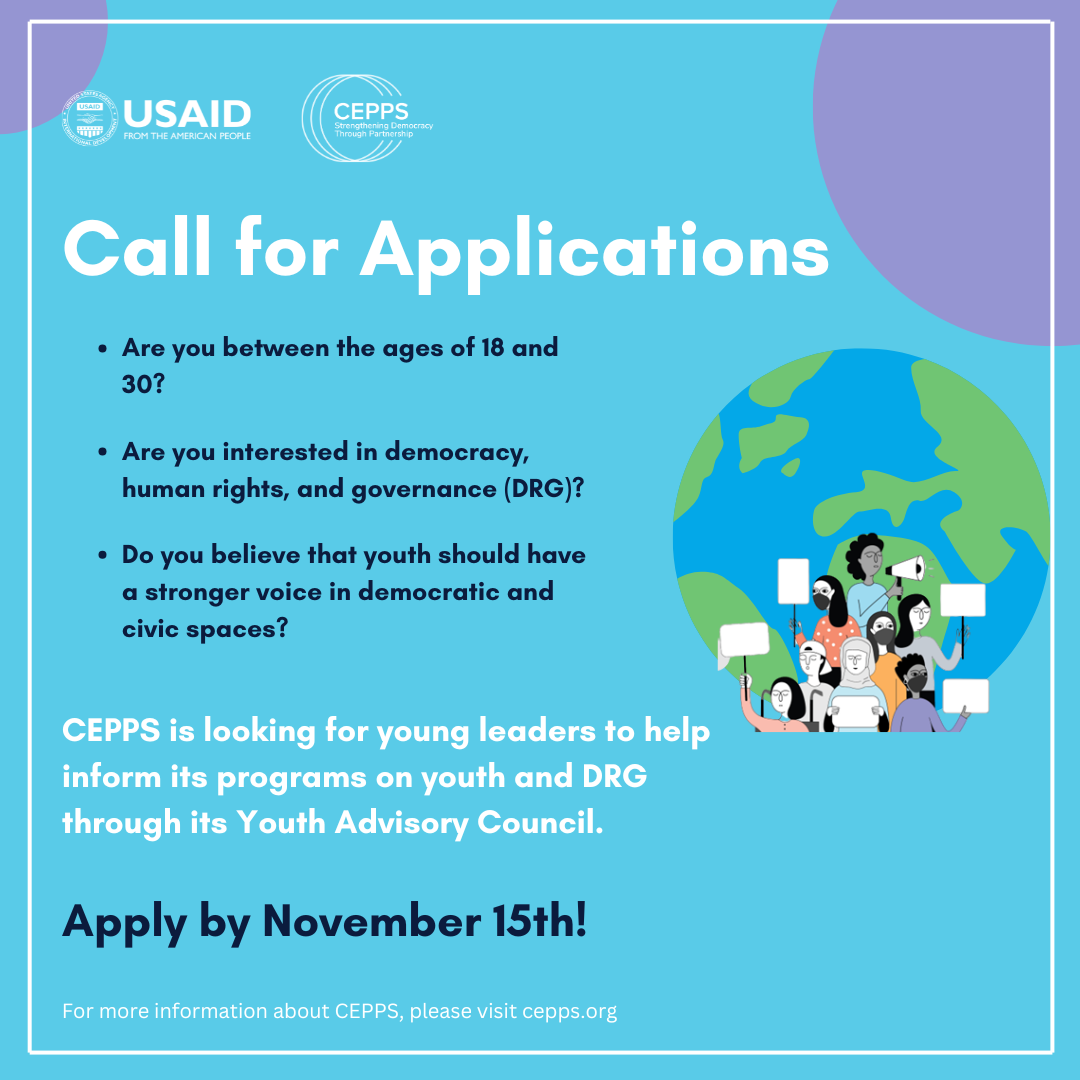Young people constitute the majority of the population in conflict-affected countries and are often excluded from peacebuilding efforts and underrepresented in formal political structures. In December 2015, the UN Secretary Council officially recognized the positive role of youth in peace and security (YPS) in Security Resolution 2250, which urge states to both consider young people’s political exclusion and increase the representation of youth in all levels of decision-making. This requires analyzing YPS efforts through a democracy, human rights, and democracy (DRG) lens with the understanding that establishing and maintaining peace is inherently political. If young people’s peacebuilding efforts are disconnected from broader democracy and governance efforts, it will be challenging to integrate their perspectives into public policies and laws or, more importantly, to sustain their impact. For example, in multiple countries, there is promising evidence that the establishment of new linkages between youth and parliament, the use of young parliamentarians as mediators, and the promotion of dialogue in divided societies through young parliamentarians have resulted in positive outcomes that may advance peace and stability over time.
—
View original story at NDI.org


